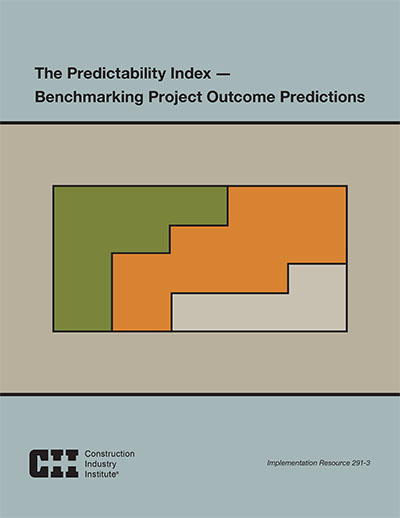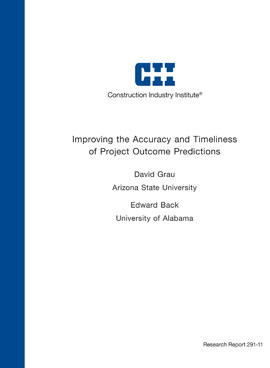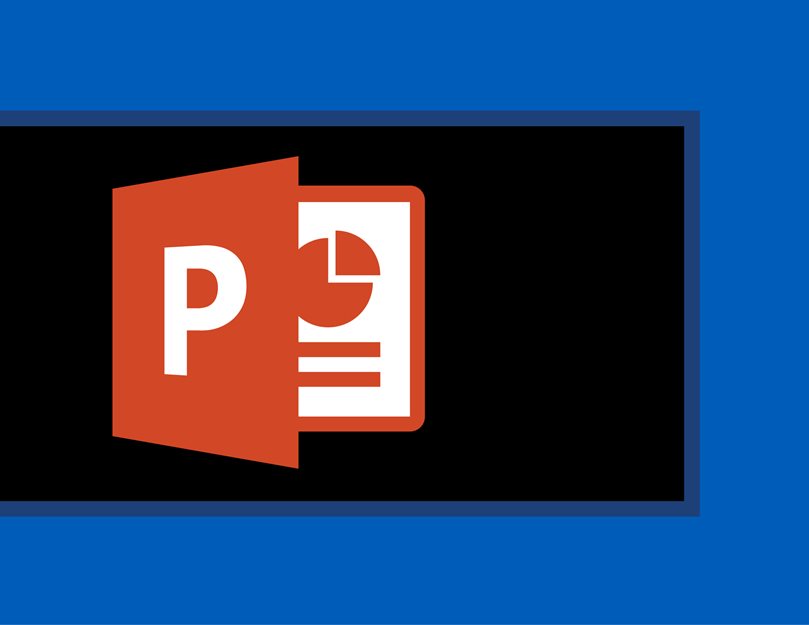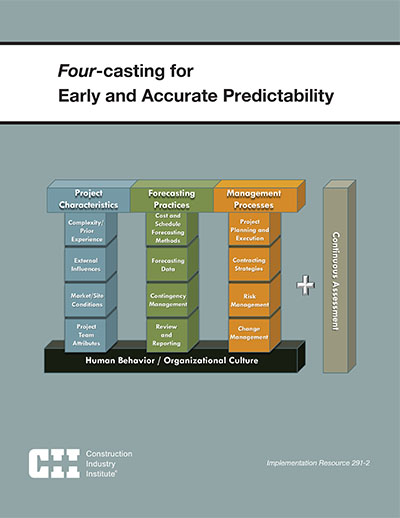
The Predictability Index — Benchmarking Project Outcome Predictions
CII established Research Team 291 to help project teams produce more reliable project cost and schedule forecasts. To do this, the team worked to isolate the factors that promote accurate, timely, and consistent project outcome predictions. Having such reliable forecasts empowers project teams to adopt appropriate mitigation actions sooner than they would with faulty predictions. This ability to be proactive, rather than reactive, can significantly improve a team’s ability to minimize the deviations between predicted and actual outcomes. For example, while the early recognition that the baseline cost of a project has been significantly underestimated cannot guarantee meeting cost targets at project completion, it can enable the project team to proactively address and improve cost performance. Conversely, the early recognition that a project’s baseline cost has been significantly overestimated enables organizations to invest the overcommitted funds as early as possible in other financial endeavors in order to fulfill the expected rate of return. A timely and proactive response to external events leads to earlier and more accurate predictions of project outcomes. Indeed, improved predictability enables project teams to address project performance in a proactive and timely manner and, thus, increase value. While project teams should not be expected to eliminate all surprises, they can actually mitigate the potential negative effects of such surprises by recognizing them early and producing timely information on them. Unexpected events, whatever their quantity or magnitude, can always be properly managed with the right people, processes, and behaviors.
Because a project team’s response to such events can make such a difference, its cost and schedule performance must be evaluated on the basis of its ability to mitigate deviations through the timely prediction of cost and schedule outcomes—as opposed to the prevalent practice of basing evaluations on the magnitude of the final deviations alone. However, evaluating how effectively (i.e., how early and how accurately) a team forecasts cost and schedule project outcomes is not a common industry practice. Indeed, to date, the industry has not had a method or tool to measure a team’s ability to make timely and accurate project outcome predictions.
To address this lack, RT 291 developed the Predictability Index (PI), a metric that enables organizations to assess and benchmark their predictability efforts on completed projects. For a given project, the lower the Predictability Index is, the better the predictability performance. The Predictability Index is expressed as the sum of cost and schedule predictability measures, as Chapter 2 explains. Chapter 2 also defines the Predictability Index and its components, while Chapter 3 provides guidance on making PI assessments and interpreting PI values. Chapter 4 provides step-by-step instructions for using the PI tool.
IR291-3, The Predictability Index – Benchmarking Project Outcome Predictions
Use this tool at project completion to provide a quantitative assessment of accuracy and timeliness of cost and schedule forecasts.
- Benchmarking predictability performance
- Quantitative and objective measure
- Timeliness and accuracy of cost and schedule forecasts



